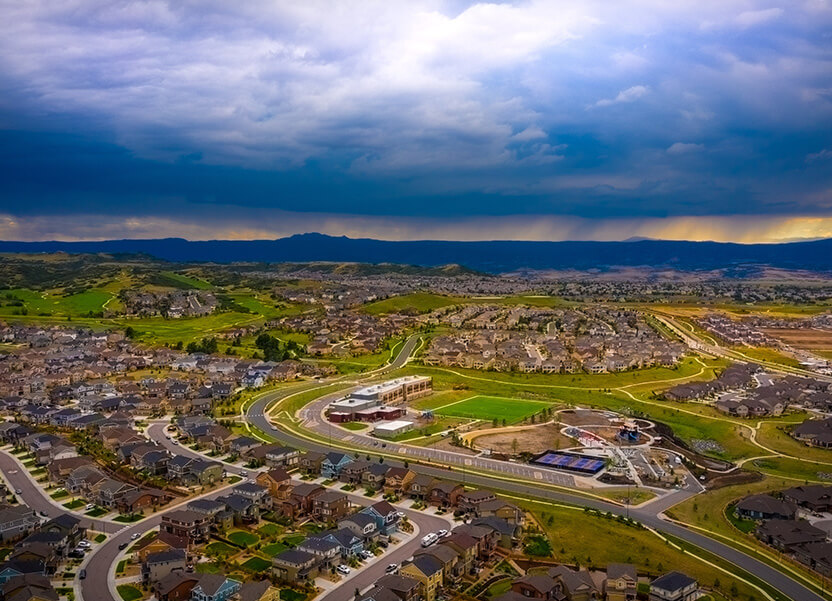
Homeowners: Determining Your Metro District Residency
Understanding whether you live in a metro district is crucial for homeowners. It affects various aspects of your property, from tax responsibilities to the amenities you enjoy. Here’s the most straightforward way to find out:

Check Your Property Tax Bill
Visit Your County’s Website: Each county has a dedicated section for property and tax information, often found under ‘Property and Tax Information’ or the ‘Assessor’s Office.’
Use the Property Search Function: Enter your property’s address to pull up your tax bill. This document will list all the entities that levy taxes on your property, including any metro district.

Additional Resource: Metro District Map and List
For a broader overview, the Colorado Department of Local Affairs maintains a comprehensive map and list of metro districts.
Visit the Colorado Department of Local Affairs to explore this resource and gain a better understanding of metro districts in your area.

Living in a Metro District
Life in a Metro District is like life anywhere else, with a few key differences. To learn more about your specific district, look up their name. All Metro Districts should maintain an online presence with up-to-date information on their activities and leadership.
While initially under a board of directors, all Metro Districts eventually replace their board with a board made up of residents. To learn more about your council or run for the board, look up your specific district.

Policymakers: Understanding Metro Districts
Role and Function of Metro Districts
Metro districts are independent governmental entities, crucial for the development and maintenance of public infrastructure in Colorado. Here’s what policymakers need to know:
Purpose: Metro districts finance, design, acquire, install, construct, operate, and/or maintain public improvements.
Construction Limitations: By law, only public infrastructure can be constructed.
Taxation and Service Plans: Taxes imposed by metro districts are bound by the duration of their service plan with the local city or county.
Legal Framework: Governed under Title 32, Article 1 of the Colorado Revised Statutes, metro districts must provide at least two types of public services, including fire protection, parks and recreation, safety protection, sanitation, and more.
Homebuyer Notification: State law mandates that buyers must be notified of a property’s metro district status during real estate transactions.
Home Sellers: Educating Prospective Homebuyers About Metro Districts
Key Information to Share with Homebuyers
When selling a home in a metro district, it’s essential to educate potential buyers about what it means to live in such a community:
Infrastructure and Amenities: Metro districts are responsible for building and maintaining essential infrastructure like roads, water, and sewer systems, as well as amenities like parks, pools, and trails.
Property Taxes and Amenities: Residents in metro districts typically pay higher property taxes, which fund the enhanced amenities they enjoy.
Equitable Taxation: This system ensures that residents outside metro districts are not taxed for amenities they don’t use.
Governmental Oversight: Metro districts operate under local and state regulatory oversight, with a focus on protecting homeowner interests.
Governance: Initially led by developers, the governance of metro districts eventually transitions to residents who can run for the Board of Directors.

Additional Resources
Brightstar is committed to providing a wealth of resources to our community. Below is a list of essential organizations and government entities in Colorado, each offering unique services and information beneficial to homeowners, policymakers, and home sellers.
Colorado Counties, Inc. (CCI)
CCI is a non-profit association dedicated to assisting county officials and fostering collaboration among counties.
Denver Regional Council of Governments (DRCG)
DRCG serves as a planning organization and technical assistance provider, promoting visionary collaboration among local governments.
Special District Association of Colorado (SDA)
SDA provides support and resources for the special district form of local government in Colorado, including communication, research, and legislative guidance.
Department of Local Affairs (DOLA)
DOLA is a state agency focused on strengthening Colorado’s communities through various support and development initiatives.
Colorado General Assembly
The official site for the Colorado General Assembly, featuring details on state representatives, legislative bills, and session information.
Colorado Municipal League
Founded in 1923, this nonpartisan organization assists municipal officials in effectively managing their governments and serving Colorado’s cities and towns.
Colorado Parks & Recreation Association (CPRA)
CPRA aims to create healthy residents and livable communities by promoting excellence in parks and recreation across Colorado.
State of Colorado
The official web portal offering comprehensive information and services for the State of Colorado.
Colorado Secretary of State
Offers information on elections, campaign oversight, event and business licensing, and more.
